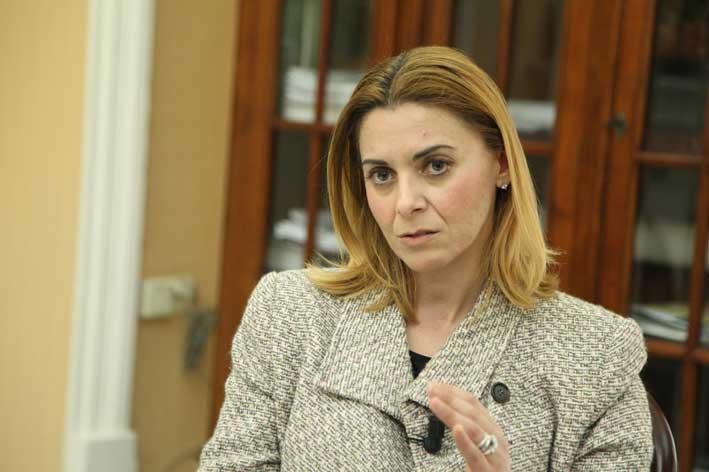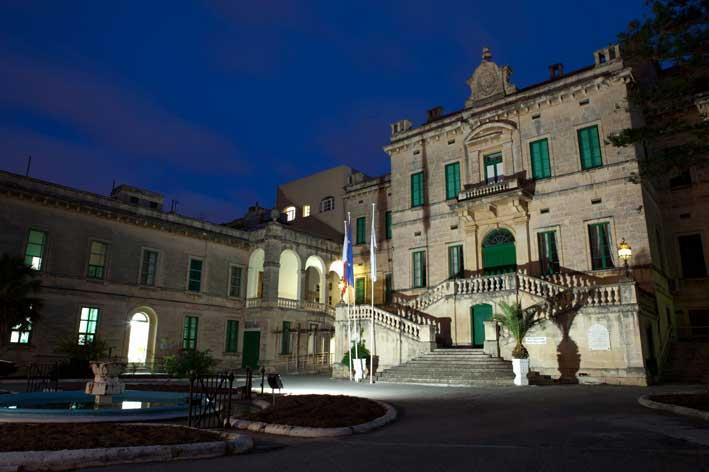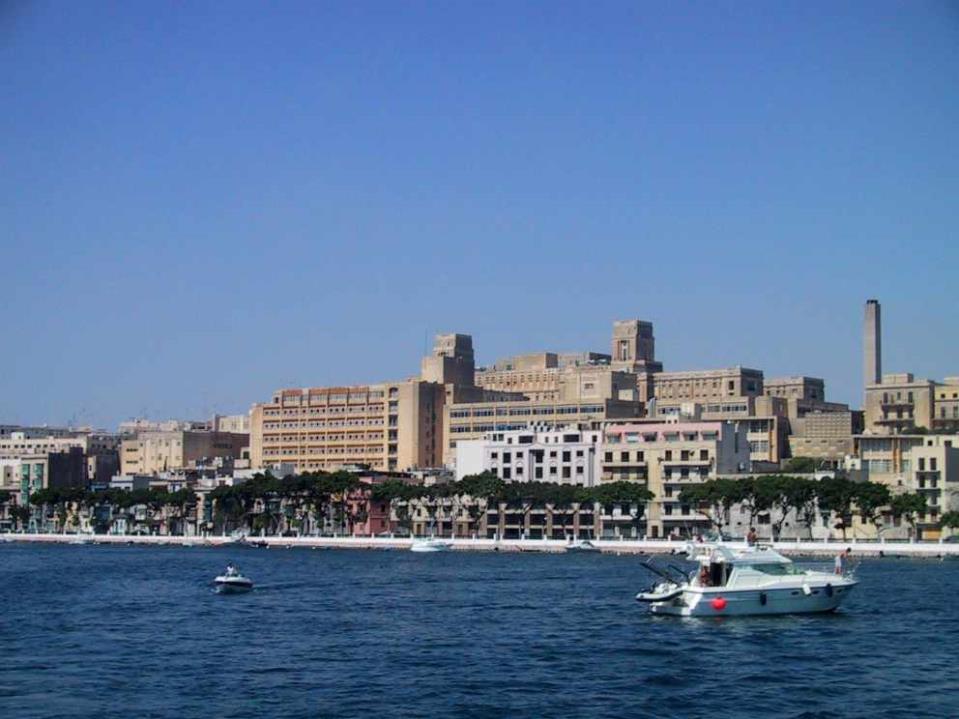Shadow Minister for the Elderly Robert Cutajar spoke of the lack of consultation in the elderly sector between government and the Opposition, his views on pensions and his thoughts on certain recent developments within the elderly sector during an interview with The Malta Independent on Sunday.
He said that things worked differently when he was shadowing the Youth and Sport sector.
“When I Shadowed Parliamentary Secretary for Youth and Sport Chris Agius, he worked in a completely different manner”. He said that Mr Agius used to consult him quite often and that during the discussions surrounding the National Youth Policy Document, Mr Agius sent a delegation to the PN Headquarters to speak with him. “That’s how we should do politics in 2015.
“The PN is not being informed, and must gather information through articles here and there, until finally seeing a document tabled in Parliament. This is not how politics should work in 2015, especially when we are not seen in the most positive light by the public. So why not come together when it comes to the sector for the elderly, given that it is a sector that affects everyone. I’m relatively new in Parliament, but we succeeded in cooperating with the Youth and Sport sector. How many scandals do you hear coming from there? It’s because Chris Agius consults”.

Mr Cutajar expressed his wish for both sides to sit down, and lead this sector forward together. Legislation currently going through Parliament is for the establishment of a Commissioner for older people. Mr Cutajar explained that such a Commissioner already exists. “Previously, the Health and Elderly sectors were under the responsibility of a single Minister. Today, Dr John M. Cachia (Commissioner for Mental Health & Older People), occupies a post that is now divided between two Ministries, and thus we agree that the post should be divided. Dr Cachia is a person who has nothing to do with politics. There was never any controversy with him”.
The Shadow Minister wants the choice of the new Commissioner to be decided through consultation with the Opposition, with the Prime Minister having final say. “In addition, the Commissioner should not answer exclusively to the government. How can a person, paid for by the government, criticise policies made by the government? We agree with the establishment of the Commissioner, but don’t want it to be another structure used by the government just so that it can get where it wants to go.”
Minimum standards for homes for the elderly
Mr Cutajar referred to certain concerns he has with the minimum standards for care homes document published by the government.
He praised the document as being “positive”, but said that it was “essentially a cut and paste of suggestions made by the Foundation for Active Aging”.
Mr Cutajar pointed out that the Opposition had not been consulted. “The government’s press release stated that an autonomous entity would be established to enforce these standards. Who will form part of this entity and who will choose them?” he asked, adding that he wants this entity to be answerable to Parliament.
He highlighted the absence of St Vincent de Paul from the standards. “You cannot have minimum standards when the government’s flagship – St Vincent De Paul – is not included, given that a large percentage of the residents are not bed-ridden. So if the mother of one person is at St Vincent de Paul and the mother of someone else is in another home, this could result in discrimination. If we had been consulted, this would be a point we would have emphasised. We cannot see such discrimination among elderly people.”
Parliamentary Secretary Justyne Caruana had previously explained why St Vincent de Paul was not included, telling the press that it had been transformed into a long-term care facility, that included medical services, nursing, etc., and thus was best treated in isolation rather than as a care home in the strictest sense of the term.

On this point, Mr Cutajar said: “That’s not on”. He questioned how the assessment of elderly people for residential care is carried out. “If someone applies and is assessed, how is he assessed?” He said he was concerned about the lack of a long term plan for the elderly and also questioned how elderly people are assessed when it comes to being accommodated in homes for the elderly and who assesses them.
Mentioning the recent Budget measure that will see live-in-carers subsidised, Mr Cutajar said this was not a bad concept, but added “A one million euros budget is not enough for it to be taken seriously and is short-term”. When it was indicated that this was a pilot project, he said: “Do you know how many pilot projects there have been in every budget? Where did the government get the estimation that 170 elderly people will make use of this? Who did it consult? We know nothing, we just found it there. I hope it works, but who will pay for live-in carers leave and sick-leave? These are questions for which we have yet to see answers. It may be early, but I am speaking about what I read in the Budget. What will happen to the elderly person when the carer takes some leave? Was an adequate study undertaken before it was included in the budget?
“Up until now, we still do not know the identity of the people who decide who goes into St Vincent de Paul and into care homes. I tabled around four or five Parliamentary Questions to the government, asking them to say who makes these decisions. We have serious doubts as to how people are assessed. Tell us who these people are? They always tell us it is a multi-disciplinary board, but who are they? We do not know if they meet at St Vincent De Paul or at the Ministry or if the Minister has the final say as to who is given accommodation. We do know, however, that there have been cases where social worker reports have not been fully taken into consideration. What’s wrong with being transparent? Show respect for the professionals. If there is a report from a social worker, how can the board just ignore it? I recently had a meeting with social workers and across the board, they are feeling depressed because their work is not being respected,” he said.
Mr Cutajar also mentioned a Parliamentary Question he had tabled, asking whether some three or four homes for the elderly owned by government were to be sold to the private sector. “Regarding which they did neither exclude, nor confirm, that government-owned homes would be handed over to the private sector”. He stressed that the government should tell the public their plans and vision for the elderly, pointing out that picking up bits and pieces from here and there is not good. “The government must tell us what they are going to do with government-owned homes for the elderly.” He also said that when it comes to standards in such care homes, the government should lead by example.

Two weights, two measures
On the subject of certain cases of abuse at St Vincent De Paul, Mr Cutajar said that a government proposed law, which was supported by the PN Opposition, envisaged harsher penalties for those who abused the elderly or were aggressive towards them. “We condemn every form of violence. In St Vincent de Paul, however, there were cases where the managers of the home were using two weights and two measures. This is not acceptable. There must be no distinction between worker A and worker B. There is no middle road.
“There have been cases where one person was suspended and another transferred to another ward. I am not a judge. We know about this through internal reports from staff and the media, not because the government told us. The Opposition is against all abuse, regardless of who commits it. Abuse is abuse, the elderly should always be respected and politicians should never intervene. There is a need for an independent board to adjudicate such matters”.
The key to preventing abuse of the elderly is an educational campaign among the staff, he said. “Human resources remains the most important resource in Malta. We must invest in our human resources, in training and assessment. I thank all those who work in the elderly sector. I think the key is a good assessment as to who is posted in what wards and an education campaign. This should be part of a holistic plan for the elderly”.

Karen Grech Hospital employees concerned
As for Karen Grech Hospital, Mr Cutajar raised the question of what would happen to the workers who are currently there, pointing out that they are uncertain of their future. He said that the company that is buying Gozo General Hospital is the same one that is buying Karen Grech. In the Budget speech, he said, Finance Minister Scicluna said: “I appeal to those workers at Gozo General Hospital not to pay any attention to those whose intention is to incite fear. As happened with Enemalta, we will ensure that not only will no-one lose their job, but new opportunities will be created.
“As such what goes for staff at Gozo General Hospital also goes for those at Karen Grech. There are Enemalta workers going home with €300-500 less due to changes in allowances, shifts, etc., each month. So saying that no jobs will be lost is ok, but when you say there will be new opportunities – we know how many people left Enemalta. God forbid that what happened there happens in the health sector, in Gozo Hospital and Karen Grech Hospital. They weren’t given a guarantee. A guarantee would be the Minister saying that the workers would have so and so, not a statement telling them not to be worried. I met a number of staff from Karen Grech Hospital, and they do not know what will happen to them. They are not convinced by the Minister telling them that their wages will remain the same.”
Pointing out that he takes care of the PN’s contact office and is responsible for cases of discrimination, he says: “Most of those who contact us are Enemalta workers”.
Turning to the home for the elderly currently under construction in Gozo, Mr Cutajar said: “In 2013, Minister Anton Refalo said that the PL government would provide a home for the elderly to open a new tourism niche in Gozo. Ok, so Gozo has a shortage of homes for the elderly and the government’s idea is to open a niche for foreigners, not the Maltese? That’s not on.”

He said that work on the Gozo home has stopped. “There are only a few tens of thousands of euros allocated in the Budget document for this home. How can you build a home for the elderly with that amount? In addition, it was also not mentioned in the Budget speech, and I would have thought that the first home for the elderly in Gozo on such a scale would be mentioned, yet when you look at the estimates, you can see just a few tens of thousands.”
“The last home for the elderly built by the PN in Mellieha, cost around €7 million, so how will this home in Gozo be built by next year? Homes for the elderly fall under Minister Anton Refalo, yet the Day and Night Centres and services for the elderly fall under Justyne Caruana. Both are from Gozo and from the same electoral district. I asked the Prime Minister who was responsible for active aging in Gozo? Is it the Gozo Ministry or the Family and Social Solidarity Ministry? His response was that I should “ask the Minister concerned”. So the Prime Minister avoided the question and told me to ask the Minister concerned – but there are two Ministers: is it the Minister concerned or the Ministers concerned?
Mr Cutajar also questioned if the home in Gozo would be government-owned home, a private home or a public-private partnership. “Nobody knows. It’s a mistake having two people from the same electoral district working in the department.”
Asked why a home for the elderly had not been built by the previous administration, he said that back then there might have been different priorities. “Today, with hindsight, I could say we could have done, but it wouldn’t be fair to say nothing was done in Gozo. The government used to help the home for the elderly run by the Church in Gozo. The government may have felt that there was no need back then for a home to be built. Obviously, I did not form part of the Cabinet back then, so I cannot tell you if a decision on the subject had been made and it would be presumptuous of me to do so.”
Pensions
Turning to the subject of pensions, Mr Cutajar said that saying “pensions did not touch the retirement age is wrong, as the age for the maximum pension was proposed to rise by a year from 40 to 41, according to the budget”.
“The government has also said that pensions were rising for the first time in 20 years. This statement is incorrect. Up until five or six years ago, if the COLA went up, pensioners would receive only two-thirds of the amount. This changed during Lawrence Gonzi’s premiership, and now the entire amount is reflected in pension payments. So pensioners will receive the whole €1.75. Apart from this there was the widow’s pension, under which the elderly were able to continue working and receive a pension, and this government has continued strengthening this, which is good.

In Mr Cutajar’s opinion: “We are already behind with pension reform. The cardinal point is that we need sustainable pensions. It is easy to create a budget of the day, but when it comes to pensions, we need to look to the future and ensure they are sustainable. There is the issue of a second and third pillar. We need to see what would work for the country, and not what would please the public.
“If it is true that our country is doing well economically, then this is the time to plan ahead, being careful and proactive and making the right decisions for the future. In the coming months, every Shadow Minister will be working on presenting our ideas as to what we believe should be the way forward for the country”.
He said that, at some point, the timing for the introduction of second pillar pensions will need to be discussed. “We cannot leave it on the shelf. We know that when the third pillar was introduced it was not successful, so was the right homework done on the subject before it was launched? The fact that it didn’t work as well as we thought it would means that something went wrong, and we need to identify what this was so that we can improve the plan.
The Opposition is willing to give its contribution on this subject – it is not a political matter. At the end of the day, Nationalist or Labourite, pensions will affect everyone. I only hope that the government did not only handle the workings with a short term view when it comes to pensions, so that when X + Y is added come next election they would be able to say that X number of pensioners benefitted from reforms which in fact are short-term and not long-term”.